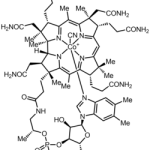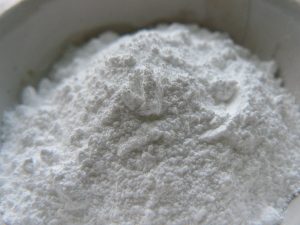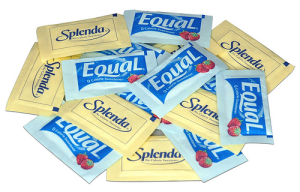What is Niacinamide?
Niacinamide is a water soluble Vitamin, also known as Vitamin B 3. Another form of Vitamin B3 is Niacin. Niacinamide is a necessary for human and animals metabolism and making energy. Niacinamide helps to prevent and control diabetes, maintains normal functioning of skin, nerves, digestive system.
Niacinamide properties
Chemical name: 3-Pyridinecarboxyamide
CAS No.: 98-92-0
Chemical structure: 
Molecular Formula: C6H6N2O
Molecular Weight: 122.13
Appearance: White crystalline powder or white granular powder
Melting point: 128~131℃
Solubility: 1g Niacinamide can dissolve in 2ml of water, 1.5 ml of ethanol and about 10ml glycerol. Soluble in acetone, amyl alcohol, chloroform, propylene glycol, butanol. Practically insoluble in ether and benzene.
Niacinamide Function
Nicotinamide is an important part of the coenzyme Ⅰ and coenzyme Ⅱ in human and animal body, involved in lipid metabolism, tissue respiration and carbohydrate oxidation during the process of anaerobic decomposition. It’s mainly used for medicine, food and feed additives field.
Function in animal feed additives, Nicotinamide can prevent from skin lesions and digestive diseases; promote animal growth, improve egg production and hatching rate, to ensure good feather growth; to treat of mucosal inflammation and ulceration; Prevent from the livestock and poultry perosis.
Function in medicine and food additives, Nicotinamide can prevent of skin lesions and digestive diseases; to promote participation in the body of material and energy metabolism, to promote human growth and development; to treat a variety of mucosal inflammation and ulcers with other drugs; Strong vasodilator effect, to improve the blood supply to the body function, feature favorable effect on cerebral thrombosis, coronary heart disease, hyperlipidemia and so on; to treat nicotinic acid , nicotinamide deficiency caused by its long-term medicament of isonicotinic acid hydrazine and analogs.
Niacinamide Benefits
The European Food Safety Authority (EFSA) has confirmed following health benefits for the dietary intake of Niacinamide:
- Normal energy metabolism and nutrient utilization
- Normal function of the nervous system and mental function
- Maintenance of normal skin and mucous membranes
- Maintenance of normal bones, teeth, hair and nails
Niacinamide are used interchangeably in most of the applications in Animal Nutrition.
Human Nutrition
- Essential vitamin for body growth and maintenance
- Prevents bone abnormality
- Reduction of ketosis incidence
- Improves milk production
Skin care
- Improves skin barrier function and helps in skin moisturization
- Helps in skin lightening- reduces red blotchiness, yellowing and hyper pigmented spots
- Tackles anti-aging, reduces wrinkling and Improves skin texture
- Reduces acne and sebum production, inhibits oiliness and greasiness of skin.
- Repairs photo damaged skin and reduces damaging effects of UV on skin
Hair and Scalp care
- Helps in hair growth
Under-Eye Care
- Softens the rings around the eyes
Recommended Dosage: 10~200mg/kg
Storage: Store in original unopened cartons,to be protected from heat and light,keep away from moisture. Expiry 36 months from the date of production in original sealed packages. Once the original packages are opened, please use the goods within a short period.
Packaging: 25kg net in carton with Aluminum foil bag or 1000kg woven bag
Difference between Niacin and Niacinamide?
Niacinamide is not the same as niacin. Niacinamide is also known as nicotinamide or nicotinic acid amide. It is the amide of niacin. Niacianamide is part of B-vitamin and it is water soluble. Niacinamide is derived from niacin. These two are components of B3-vitamin and they are often used as supplements interchangeably.
Vitamin C (Ascorbic Acid) and Niacinamide can be used together?
Research has shown that combining niacinamide and vitamin C does not lead to skin problems; in fact, the combination can lead to a wealth of skin benefits.
Niacinamide is a pretty “tough” ingredient; light and air don’t have the same effect on it as they do on antioxidants like vitamin C. What’s important for niacinamide is that the product be formulated at a pH that’s close to neutral. Vitamin C (pure ascorbic acid), on the other hand, does best in a low-pH (acidic) environment. However, nicotinic acid—the undesirable by-product of niacinamide and vitamin C—becomes an issue only when the niacinamide and vitamin C are combined in a high-temperature environment for a long time. That temperature is higher than you’d find in most at-home scenarios, including leaving a box of skincare products sitting outside in the sun for a couple of days.
Also, it’s important to point out that this concern applies only to pure vitamin C, not to its many other forms (such as magnesium ascorbyl phosphate, tetrahexyldecyl ascorbate, and ascorbyl glucoside). So, to reiterate, combining ascorbic or l-ascorbic acid with niacinamide is fine.
In short, any studies that show a definite issue from combining niacinamide and vitamin C were conducted in an environment that does not reflect what average skincare products experience during development, manufacturing, or in real-world storage and usage.
Reference: https://www.paulaschoice.com/expert-advice/skincare-advice/myths/can-niacinamide-and-vitamin-c-be-used-together.html
Niacinamide food sources
Niacin and Niacinamide are forms of Vitamin B3. Vitamin B3 is found in many foods including yeast, meat, fish, milk, eggs, green vegetables, beans, and cereal grains.
Niacinamide Uses
Niacinamide is used as a food supplement to ensure replenishment of nutrients in human nutrition, animal nutrition and cosmetics.
- Human Nutrition: In Vitamin premix, dietary food supplements, enrichment of breakfast cereals and flour, beverages & energy drinks, infant formulas, baking and confectionery.
- Pharmaceuticals: Multivitamin tablets, Niacinamide for treatment of diabetes and Niacin for high cholesterol levels.
- Animal Nutrition: Poultry, dairy, swine, cattle, pet food, veterinary drugs
- and aqua feed.
- Cosmetics: Skin creams, hair lotions and other personal care
Most Vitamin B3 Niacinamide deficient animals show poor growth and reduced efficiency of feed utilization.
Vitamin B3 Niacinamide deficient chickens show inflammation of the upper gastrointestinal tract, dermatitis of the legs, reduced feather growth and pecrosis.
Ducks and Pigs are particularly sensitive to Vitamin B3 deficiency. Ducks show severely bowed and weakened legs and diarrhoea while Pigs show diarrhoea, anaemia and degenerative changes in the intestinal mucosa and nervous tissue.
Studies have shown Niacinamide treatment of lactating cows to depress circulating ketones and hence concentrations of non-esterified fatty acids in the plasma.
Vitamin B3 Niacinamide deficient dogs show necrotic degeneration of the tongue with changes of the buccal mucosa and severe diarrhoea.
The Animal feed and Nutrition industry typically supplements diets with Vitamin B3 Niacinamide to ensure that the daily requirement of the vitamins is met.
Recommended Vitamin B3 Niacinamide Dosage per Kg of complete feed.
- PoultryApprox 30-50 gm/ Ton of Feed
- SwineApprox 15-50 gm/ Ton of Feed
- Cattle (calves, milk replacer)Approx 30-40 gm/ Ton of Feed
Niacinamide is preferred form of Vitamin B3 to be used in personal care application. It has shown encouraging results when formulated into skin creams, hair lotions and other personal care products.
The ingredient when incorporated in the topical delivery system enhance elegance, skin feel and texture upon application.
While research is ongoing to discover additional properties of Niacinamide, many clinical studies have already concluded following beneficial properties of Niacinamide.
Niacinamide Side effects
Although niacinamide is considered as a safe vitamin, there are some side effects.
Unlike niacin, niacinamide does not cause flushing. However, niacinamide might cause minor adverse effects such as stomach upset, intestinal gas, dizziness, rash, itching, and other problems. When applied on the skin, niacinamide cream might cause mild burning, itching, or redness.
Reference: https://www.webmd.com/vitamins/ai/ingredientmono-1534/niacinamide
Niacinamide Market
Niacin VS Niacinamide in the market
Nicotinic acid and niacinamide are both known as VB3. Since niacin and niacinamide have the same physiological functions, both have equivalent biological titers and the same activity measurement, niacin and niacinamide are all supplemental forms of animal VB3. .
Due to the different distribution of nicotinic acid and nicotinamide production plants in different countries and regions, as well as the promotion and guidance of manufacturers, nicotinic acid is basically selected in Europe and the United States. In China and Southeast Asia, formulators are more often used to choose nicotinamide.
Before 2011, no domestic company had a real production capacity of 500 tons of niacin, and the annual production of nicotinamide in China was about 10,000 tons. Therefore, the price of niacin in the market is generally higher than that of niacinamide by about RMB 2,000 per ton. Based on price and promotion guidance, the Chinese market basically uses nicotinamide.
Today, the rapid development of nicotinic acid manufacturers in China, and the price of niacin is approximately 1,000 yuan less than that of nicotinamide. The use of niacin has a cost advantage over nicotinamide.
Previously, we thought that niacin had a certain degree of irritation and inconvenience. Nowadays, the nicotinic acid produced as crystal granular process has basically eliminated the pungency of niacin;
And with the widespread adoption of automated production lines, opportunities for workers and materials have been greatly reduced.
We are accustomed to think that niacin is less stable than niacinamide.
Experiments show that nicotinic acid and nicotinamide are both stable and maintain a high survival rate in the composite multidimensional and premixed materials;
Experiments showed that there was no difference in the effects of nicotinic acid and nicotinamide on trace elements, vitamins and other active ingredients.
Tests have shown that granular nicotinic acid is superior to niacinamide.
Tests have shown that nicotinic acid is less hygroscopic than niacinamide, and it is not easy to absorb moisture and agglomerate, making it more stable and long-term storage. When the niacin package is in good condition, store it at room temperature for 3 years, and the main points and indicators meet the standards.
Niacinamide manufacturers
Niacinamide has the identical vitamin function as niacin without the vasodialating effect that can cause skin flushing, making this Vitamin B3 form a suitable ingredient for oral and topical human applications. Manufacturers of energy beverages and dietary supplements include niacinamide in formulations to aid metabolism of protein, sugar and fat for energy conversion. Niacinamide is also used in a variety of cosmetic, skin care, and hair care products for anti-inflammatory, lightening and brightening, and conditioning benefits. Commercially available facial moisturizers, eye creams, anti-aging products for the face and body, hair shampoos, conditioners, and coloring treatments include Niacinamide as an ingredient.
Vitamin B3 Niacinamide supplementation for animal nutrition produces a more complete diet that improves growth and feed efficiency and overall health. Vitamin B3 Niacinamide activity is essential for healthy animal metabolism and supplementation adds value to your feed program with proven results.
China is the big food and feed grade Niacinamide manufacturers and export country in the world.
There are several Niacinamide manufacturers in China and abroad, as you know, the price of China suppliers can be better than abroad manufacturers. We have worked with China top manufacturer for years, we would like to recommend our selected Niacinamide manufacturers to you if you would like to save your purchasing cost with the same quality compared with abroad manufacturers. Niacinamide Samples are available if you need it for further test.
Where to buy Food and Feed grade Niacinamide?
You can buy food or feed grade Niacinamide from us. We’re committed to the quality and safety of our ingredients. We know that our customers expect us to use only the highest quality food additives & ingredients with better price, and we do everything we can to satisfy those expectations.
If you have any other questions, please email us through: info@foodsweeteners.com




